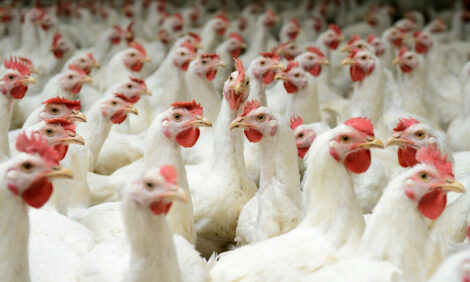



Weekly Overview: Oxford Conference Looks to the Future of Farming
GLOBAL - The theme of this year's Oxford Farming Conference, held in the UK university city earlier this week, was on the sustainability of farming - why it is so necessary and how to make progress in the right direction, writes Jackie Linden. We have several reports from the Conference, as well as the prospects for the Russian poultry meat industry in 2014 and the latest news on bird flu.Among the many stories we have featured from the Conference, a new report for the meeting produced by consultancy, Bidwells, says that the UK farming sector has to be more open to changes in land management and must not solely consider that farmers must own the land they farm.
In opening the conference, co-chairman Adrian Ivory said that agriculture needs to play a part in the changing demographic of the world society that is seeing a larger population and changing eating habits.
Ireland's Agriculture Minister, Simon Coveney, told the Conference that in producing more food, the resources used to produce that food will have to be preserved so that more food can be produced in the future.
“We are not going to solve the global food security problems simply by producing more food,” he said, adding that we need to do much more on food waste in the developed world, which means managing diets and more education.
The Minister also called for a science-based approach to the intensification of food production in global agriculture.
The longer Europe continues to close its doors to genetic modification (GM), the greater risk that the rest of the world will pass it by.
UK Environment Secretary Owen Paterson told the Oxford Farming Conference that regulated GM technology presents some of the biggest and "most exciting" opportunities for agriculture.
In Russia, the meat sector had a mixed year in 2013, with low margins in the first half of the year because of record feed prices and low prices for the main types of meat and in the second half of the year, a rise in margins as feed prices fell back.
According to the Institute for Agricultural Market Studies, IKAR, one of the main drivers in growth in the Russian meat sector is the growth in poultry meat production.
However, after a rapid growth in production over the last three years – an increase of 10 per cent compound average growth rate – the growth rate is expected to have fallen slightly, while still remaining high.
IKAR said that production by the end of 2013 will have increased by six per cent, reaching 3.85 million tonnes deadweight. The Institute predicts an increase in production of between 210,000 and 230,000 tonnes liveweight this year – a rise of 4.4 per cent.
And finally, turning to news of bird flu, the first ever human case of H5N1 in North America has been reported this week. An airplane passenger arriving from China was taken ill and has died in Canada, having probably contracted the infection from live poultry in China. The authorities in Shanghai are closing all poultry markets from the end of January for three months as a precaution against the spread of bird flu viruses from poultry to people. The H7N9 virus has been found at Chinese poultry markets lately.








